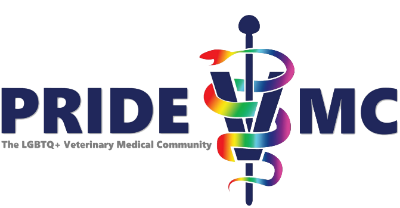Freedom of Gender Expression
Freedom of Gender Expression
Author: Ewan Wolff, PhD, DVM, DACVIM
Review: Mia Cary, DVM
From the GIBOR: “Gender expression is an individual freedom that may not match perceived societal gender norms. Thus, gender expression is not mandated by gender identity or transition. Any act within the veterinary profession, by an administrator, within an institution or organization, or by an employer or coworkers that restricts this right should be viewed as unacceptable”.
Importance and Historic Precedence
Gender expression is a separate concept from gender identity as discussed in the introduction to this section. The ability to separate gender expression from gender identity is a concept that was perhaps popularized in the last century by the ‘flapper’ movement in the 1920’s in which women broke away from societal norms and developed pants as an acceptable fashion. In the subsequent decade bisexual, lesbian, and queer women took one step further in pushing the boundaries as drag kings (e.g. Gladys Bentley, Josephine Baker, Marlene Dietrich) (Doonan, 2019). Perspectives around gender expression are entirely temporal as they pertain only to present norms; colonialist as they enforce an Anglo-Western European mode of dress; and biased as they are applied inconsistently with the ultra-wealthy or celebrated exempted from the rules on the basis of acceptable eccentricity. Dress codes have been developed to cleave to this historic ideal of what is male or female attire with no space included for deviation or queer expression. The idea of ‘professionalism’, or a status quo that appeals to all clients has already evolved in veterinary medicine with changes from the lab coat and tie/dress to the scrub attire currently seen in most all clinics. Vestiges remain though in restrictions on tattoos (which are a common part of many indigenous cultures, groups, and professions), piercings (which are common in many different cultures), and hair color (which is commonly dyed in the queer community).
Denying gender expression is denying a key component of transition for many gender diverse people that helps with gender affirmation.
Legal Precedence
Laws existed in the 1800s and early 1900s in the United States that prohibited gender transgressive attire. Words like ‘cross-dressing’ and ‘transvestism’ which are rightfully seen as slurs at this point were leveled at queer and cis people alike for deigning to wear gender non-conforming clothing. In the 2023 state legislative sessions, multiple drag bans were passed around the country, some of which have been successfully challenged and repealed. Drag is a queer art form that is gender norm transgressive and may or may not be a part of someone’s gender expression. What many do not understand is that these drag bans are aimed more broadly at gender expression meaning that violators (including cis people) could in some states be charged with a Class C felony for being in the presence of a minor or being fined/arrested simply for their appearance. Such bans could provide a pretext to reverse hard won gains in gender expression for women as well as gender diverse people. Counter to these laws, the Bostok v. Clayton County ruling should protect gender diverse people from this form of discrimination.
Due to the current shifting landscape, please stay abreast of the latest information by engaging with organizations such as Transgender Law Center and independent journalists such as Erin Reed.
Impacts of Harm
Removal of an important aspect of gender affirmation.
Classifying certain gender expressions as non-professional risks alienating all gender diverse people and in particular BIPOC gender diverse people.
Decreasing safety for those for whom gender expression is an essential element of passing (if passing is important to them).
Individual Action
As a general rule, do not criticize people’s appearance.
Speak out against dress codes and the concept of professionalism as applied to gender diverse people and BIPOC lenses of identity.
Openly support gender expression in your organization. Do not confuse gender expression with mental illness, deviance, or maliciousness. This sort of dehumanizing language is rampant right now and originates from a harmful past.
Implementation
Encourage people to come to work as themselves.
Either remove dress codes or amend them to be gender and BIPOC inclusive.
Question the term professionalism and how it is used.
Ask gender diverse people what they need for authentic gender expression in the profession.
Consequences of Violation
Consequences of violating freedom of gender expression stem from violation primarily of Bostok v Clayton County and this right is also protected by the First Amendment.
References
Doonan, Simon. 2019. Drag: The Complete Story (A Look at the History and Culture of Drag). Laurence King Publishing. Note: the views in this book are not endorsed by the author. This book has good historic images however the language around drag is problematic.
Resources
- Women Who Wear Pants: Still Somehow Controversial
Just ask a flight attendant. Or Hillary Clinton. Nora Kaplan-Bricker
https://slate.com/human-interest/2016/02/women-wearing-pants-are-still-controversial.html - This Isn’t the First Time Conservatives Have Banned Cross-Dressing in America
Clare Sears 2023
https://jacobin.com/2023/03/cross-dressing-law-united-states-history-drag-bans#:~:text=Anti%2Dcross%2Ddressing%20laws%20were%20the%20exclusive%20province%20of%20local,encompassed%20cross%2Ddressing%20when%20enforced. - LGBT Rights and the Free Speech Clause – American Bar Association
https://www.americanbar.org/groups/gpsolo/publications/gp_solo/2020/march-april/lgbt-rights-free-speech-clause/#:~:text=The%20First%20Amendment%20not%20only,order%20to%20avoid%20adverse%20treatment. - ACLU Legislation Tracker (for location of drag bans)
https://www.aclu.org/legislative-attacks-on-lgbtq-rights
Contact Us
We want to hear from you. Please contact us with any questions, suggestions or inquiries.
©2023 PrideVMC | 584 Castro Street, #492 | San Francisco, CA 94114, USA
